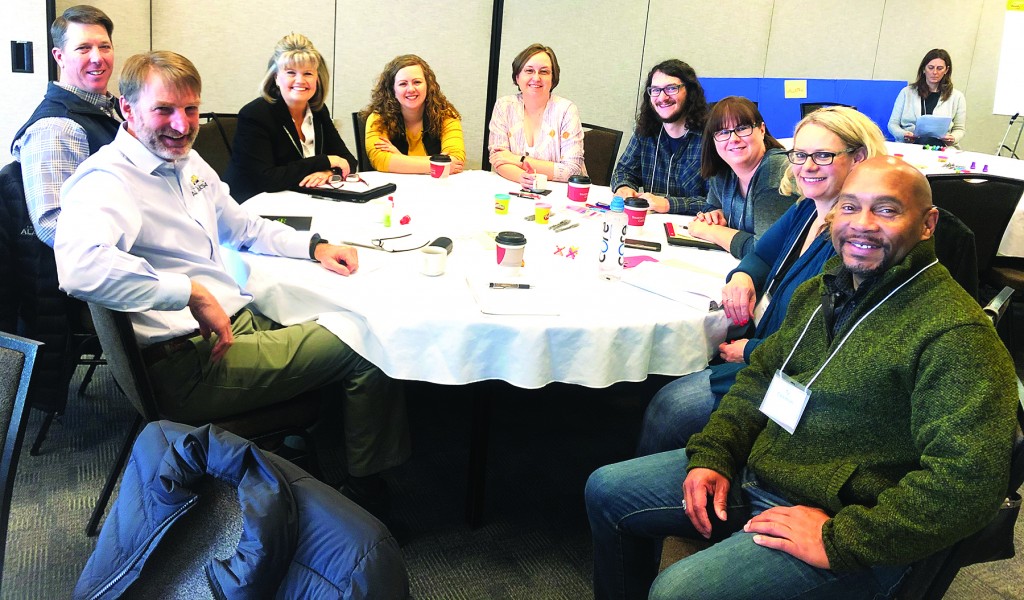‘Building Better Places’

GRAND JUNCTION — A team of nine representing the City of Alamosa was one of eight communities selected and is currently participating in a three-day training here for “Building Better Places.” The training helps communities plan for growth and development.
According to the “Community Builders” website, “The American West is one of the fastest growing and rapidly changing parts of the country. While a lot of financial and policy solutions exist to address these problems, most communities lack the civic culture needed to put those solutions to work.”
The two-and-a-half day session is intended to help community teams cultivate leadership abilities and an understanding of planning, policy, development tools, community engagement and strategies for implementation.
Each team works with a facilitator to develop action plans for how to achieve better development in their communities; “development that is fiscally responsible adds to community character and increases housing and mobility choice.”
Representing Alamosa at the session are Mayor Ty Coleman, City Manager Heather Brooks, City Attorney Erich Schwiesow, Public Works Director Harry Reynolds and Economic Development Director Kathy Woods, as well as Land Use Administrator for Alamosa County Rachel Baird, ED for SLV Housing Coalition Dawn Melgares, City GIS Analyst Deacon Aspinwall, and Senior VP, At SLV Fed S&L Delzia Worley.
Other participating teams are from other Colorado communities, as well as Idaho and Wyoming, according to Woods.
Monday was spent examining market dynamics that shape each community and their potential impact.
Teams assess key challenges and opportunities facing their community, “considering where they are headed given current growth patterns versus where they want to be in the future,” according to the website.
On Tuesday, teams studied the tools necessary for getting good projects built in the right places, “including land assembly, capital investment strategies, public private partnerships, and plans and policies.”
During today’s final day, “teams will work together and with the training team and their facilitator to develop local action plans, which will outline specific near-tern goals and next steps to undertake when the team gets home.”
Teams that are selected for the annual training have the cost of their lodging, most meals and all participation expenses covered in what is declared to be a $6,000 value, costing the city only 10% or $600.
“As a non-profit organization, Community Builders fundraises to cover these costs, but asks that community teams contribute 10% of the team cost to ensure buy-in from participants,” the website states.



